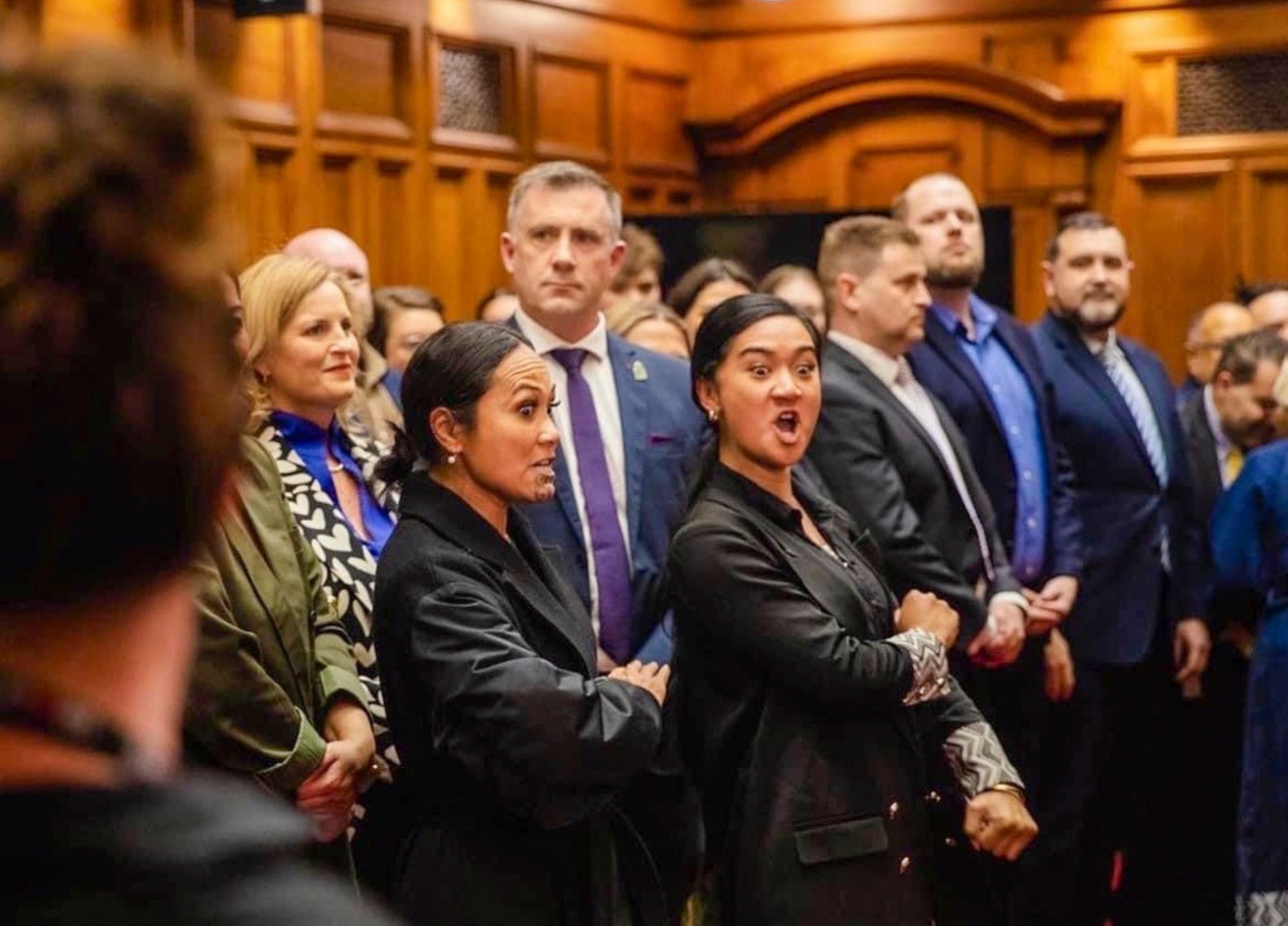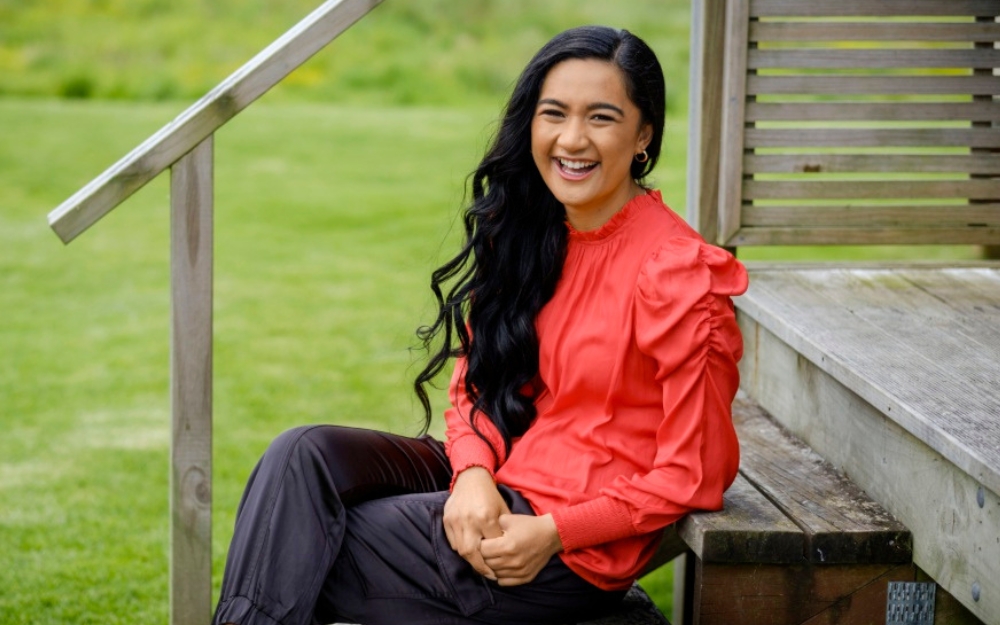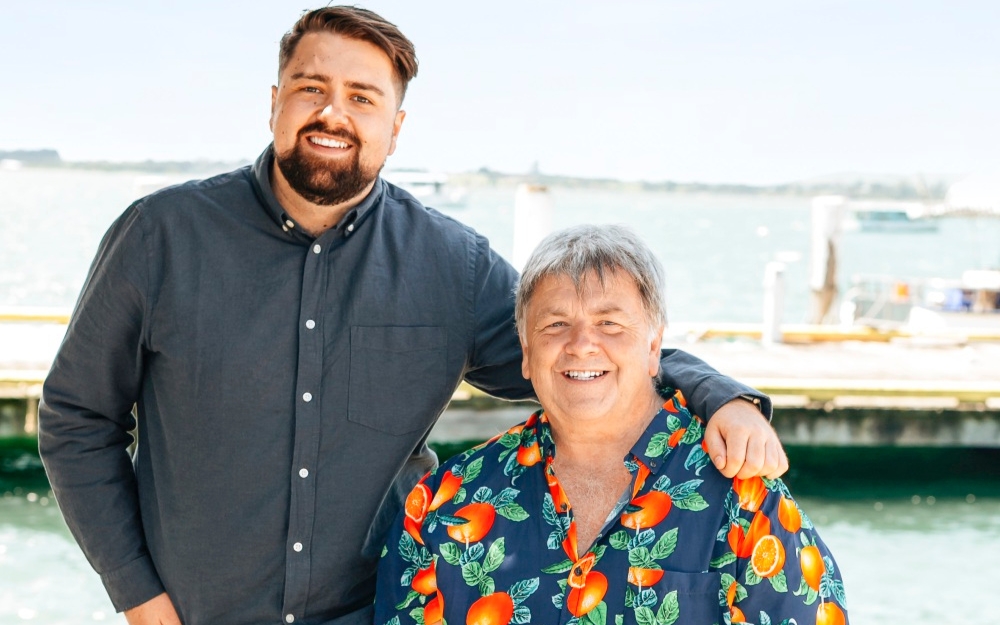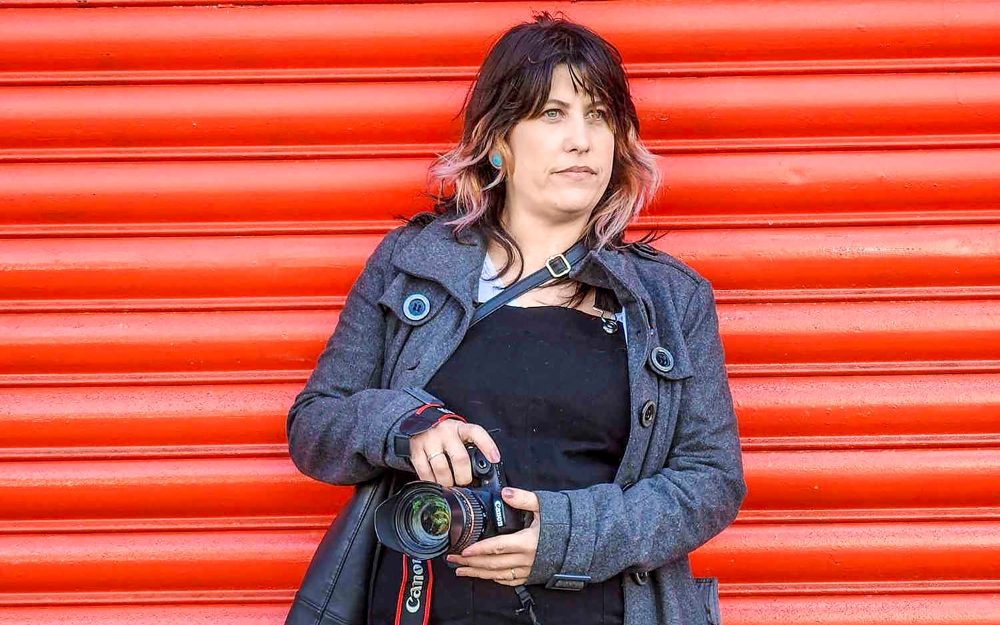At 21, she’s the youngest New Zealand MP in 170 years, but before the election, becoming a politician was never part of the plan for Te Pāti Māori’s Hana-Rawhiti Maipi-Clarke.
In fact, she initially declined four separate requests to run and spent months contemplating it before finally deciding to take on the challenge of running for the Waikato Hauraki electorate Māori seat – a stronghold previously held for 20 years by Labour’s Minister of Foreign Affairs Nanaia Mahuta.
Now as her peers organise their 21st birthday celebrations, Hana-Rawhiti is preparing for select committee and being inducted into Parliament.
And while her landslide win has made history, she humbly insists it’s only possible because of her parents and grandparents’ hard work raising her, the unwavering support of her beloved partner of six years and her wider community.
Talking to the Weekly from her home in Huntly, in her own words Hana tells what is was like growing up between her parents’ houses in Auckland and Waikato, how starting wharekura (Māori immersion high school) was the key to unlocking her identity, what convinced her to run for Parliament and how she manages it all while also navigating her early twenties.

Haere mai, Hana-Rawhiti, welcome to Parliament!
“I had probably the best childhood ever. For the first 11 years, I lived on the North Shore of Tāmaki Makaurau [Auckland] with my mum and grandmother, and commuted to Rāhui Pōkeka [Huntly] on weekends to my dad.
My parents separated before I was born, but their co-parenting skills are amazing.
My grandmother and mother are such hard, staunch women, and nothing passed by them if they didn’t like it.
My mum was one of the first Māori at a very young age to work at the Auckland Museum looking after the taonga [treasures] there.
She’s from Te Tai Tokerau [Northland] and I was in my mum’s womb when she presented to a judge why a prison shouldn’t be built on our sacred Ngawha land, and I was named after the geothermal area.
On my father’s side there was also activism.
It wasn’t overly imposed on me but I was very aware of everything they sacrificed for my little privileged self to have all of this, so I have always had on my mind, ‘What are you going to do to give back?’
For my school years, I was waitlisted for kohanga reo and kura kaupapa [Māori immersion daycare and primary school], so I went to mainstream primary school.
Then when I was 11, I decided to move down to Rāhui Pōkeka to go to wharekura [immersion high school] because I knew it was now or never.
I was always jealous of cousins and siblings going to wharekura and as much as I loved my mum, I wanted to move to my whenua [land].
I really think mainstream is another great avenue for our kids, but for me, the wharekura education system just fit like a glove and I really started to unlock my identity. It was a whole other world I had been longing for and craving for so long.
Hana-Rawhiti knew her whānau and community were with her all the way.
I also have a stepmum, and when I moved down alongside her, my dad and my grandparents, a lot of teachers took me in as their own, so I truly don’t have one set of parents – and being raised by my grandparents is one of the luckiest things I could have had.
My grandmother on my father’s side taught me the simple rules of life. She’s in her seventies but still goes to the gym every day. She taught me how to eat properly, how to garden and maramataka [Māori lunar calendar].
I learnt from watching her, and those tools moulded me and taught me the value of looking after myself first so I can serve others. It’s the greatest lesson I’ve ever learnt.
I’ve constantly watched grandparents, not just mine, give everything to a wider cause, but I didn’t see a lot of people looking after themselves. In my iwi, there’s a real mentality of ‘die for the kaupapa, die for your iwi’, but I want to live for my iwi and cut off that chain of over-exhausting myself.
I have got into politics so young, so it’s a marathon, not a race. I don’t want to burn myself out.

“It’s crazy but exciting and I’m so ready for it,” says the MP, pictured with fellow newbies (from left) Takutai Tarsh Kemp, Mariameno Kapa-Kingi and Tākuta Ferris.
I’ve always been politically aware, but my family being activists didn’t inspire me – it was more of a turn-off convincing me not to go into politics because I’ve seen how brutal it can be, and they’re not even MPs.
I didn’t put my hand up for this. I was asked four times and I declined, thinking, ‘Why do you want me? I can’t do anything. Absolutely not, no thank you.’
I had huge self-doubt – I needed to go and just be 21. But our rohe [region] had been waiting a long time and not disrespecting any other candidates, I could feel this wave coming. I knew Te Pāti Māori were going to get in and I didn’t want my iwi to miss out. I wānanga-ed [thought deeply] about standing for four months and it was driving me insane.
My partner and I have been together for six years and normally when I am indecisive, he makes the calls, but he said, ‘I can’t decide
this for you.’
I went to every possible person to ask for their guidance. My mum was very solid, ‘No, do not do it.’ She told me she knew I would get in and she didn’t want to watch me go through everything that comes with that.
My dad has always been so ambitious for me and pushed me to do whatever I want.
I was caught between no and yes for months, but as soon as I decided, my whole family, including my mum, my kura and my community, wrapped around me 150 percent.

Aroha and hard work on the campaign trail.
One of the biggest lessons and highlights was I didn’t realise how many people were behind me. But it has been really hard for my parents during the campaign to see me swim or drown knowing they can’t help me.
It sounds a bit cliché but my partner has been everything to me. We met at kura when I was 15. When you’re 15, you don’t know what’s going on, but it was just a feeling and we’ve done everything side by side since then. I knew he was the one because it’s not a rollercoaster – he keeps it sane and flowing.
Before I ran, I said to him, ‘If you don’t want me to do this, you can tell me, you’re my family.’ But he told me, ‘I always knew you would do something like this eventually’, and he has always encouraged me.
We were both studying prior to campaigning – him architecture and me indigenous studies and business management – but we have put that on hold, waiting to see what our new routine looks like.
I also run Maahina, my maramataka business and he did all of the designs. He’s really talented and wants to pursue that, which is great – a good balance to my career. He prefers to stay out of the spotlight, but he and his whānau have supported me before, during and after this time, and that’s truly the key to my success – how strong my foundations are and how supported I am.
The whole campaign was full-on, going around everywhere in our electorate, and it felt like we had 20 years’ worth of catching up to do because the seat had been held for so long. There were some huge, ‘I am going to tap out’ moments, but we did some really awesome, fun kaupapa.
We had almost no money because I didn’t want to take from people who needed it during the cost-of-living crisis, but even though we had nothing, it felt like we had everything.
We had a bus with my face on it and four generations, touring with me – my parents, grandparents, friends, siblings, nieces, nephews – all going around to marae, and whether there were 70 people or five people, we still fed them and talked to them. A lot of times people were like, ‘Wow, you’re real grass roots.’ But I am soil, made straight from the whenua.
On the night of the election, it was crazy. My whānau and partner always believed I would get in. They were so supportive and never changed their tune, but I was so shocked when I won. I hadn’t actually prepared myself for that reality.
Imagine a 21-year-old girl telling people why she wants to stand when Te Pāti Māori has never had someone successfully make it through in Waikato Hauraki.
I was going up against the Foreign Affairs Minister. Even Māori media were like, ‘What is she up to?’

The election night buzz.
My whānau put on a beautiful night and I had so many kids there for the election, and it was all about them – bubbles and kai and lollies, a band and even them getting on TV and showing them this is achievable if you go hard.
It was one of the best nights, but I have to be 100 percent honest, as soon as I got the phone call from Nanaia to say she was conceding her seat, everything came crashing down because it was never my goal for it to be me or her. I wanted it to be both of us making change in the system. It went from, ‘Yay, yay, yay’ to boom, feeling ratchet.
At the moment, it feels like a documentary unfolding – I’m going through my inductions in Parliament, then next minute I’m with my cousins down at the pā. I’m getting ready for select committee and then going to a Kiwis game.
It’s crazy but really exciting and I am so ready for it.
My circle of friends is key to my sanity – they keep me grounded and they’re so funny. I wanted to tap out after what happened to my house when I had to make police complaints about a threatening note and someone breaking into my home. I realised it’s dangerous being young and Māori, but my friends were there for me, still joking.
I’ve always been out the gate and a bit different, but coming back to Huntly, my friends and whānau keep me authentic. I’m not going to change myself to be like a 45-year-old politician who knows it all. I am just going to be me – a 21-year-old who happens to be a politician, exactly the same as any other MP.”
 Sacha Kahaki
Sacha Kahaki

